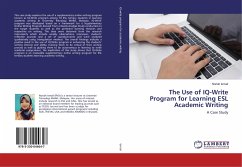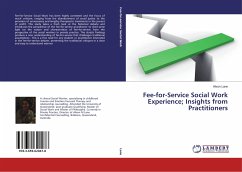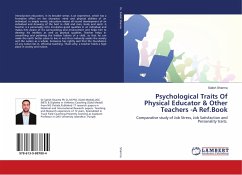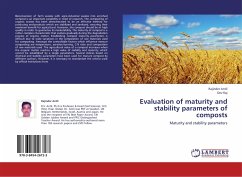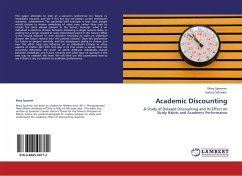
Academic Discounting
A Study of Delayed Discounting and Its Effect on Study Habits and Academic Performance
Versandkostenfrei!
Versandfertig in 6-10 Tagen
32,99 €
inkl. MwSt.

PAYBACK Punkte
16 °P sammeln!
This paper attempts to look at a person s preference for future vs. immediate rewards, and see if this has any correlation to the individual s academic achievement. The generally held principle is that most people would choose to receive something of value now, rather than wait to receive the same valued amount in the future; however, what if an individual is asked to choose between obtaining a single reward today or waiting for a larger reward at some determined point in the future? What is the reward amount or time duration necessary to make an individual choose the future reward over the pr...
This paper attempts to look at a person s preference for future vs. immediate rewards, and see if this has any correlation to the individual s academic achievement. The generally held principle is that most people would choose to receive something of value now, rather than wait to receive the same valued amount in the future; however, what if an individual is asked to choose between obtaining a single reward today or waiting for a larger reward at some determined point in the future? What is the reward amount or time duration necessary to make an individual choose the future reward over the present reward? Does this preference for future or present rewards, and the subsequent ability to choose one over the other have any influence on an individual s choices in other aspects of his/her life? OUr first step is to first create a survey that can accurately determine the point at which different individuals choose between immediate and future rewards and what type of question is the best way to establish this level. We will then use this ascertained level to see if there is any correlation to academic performance.



